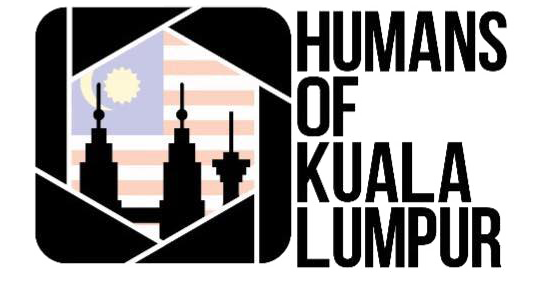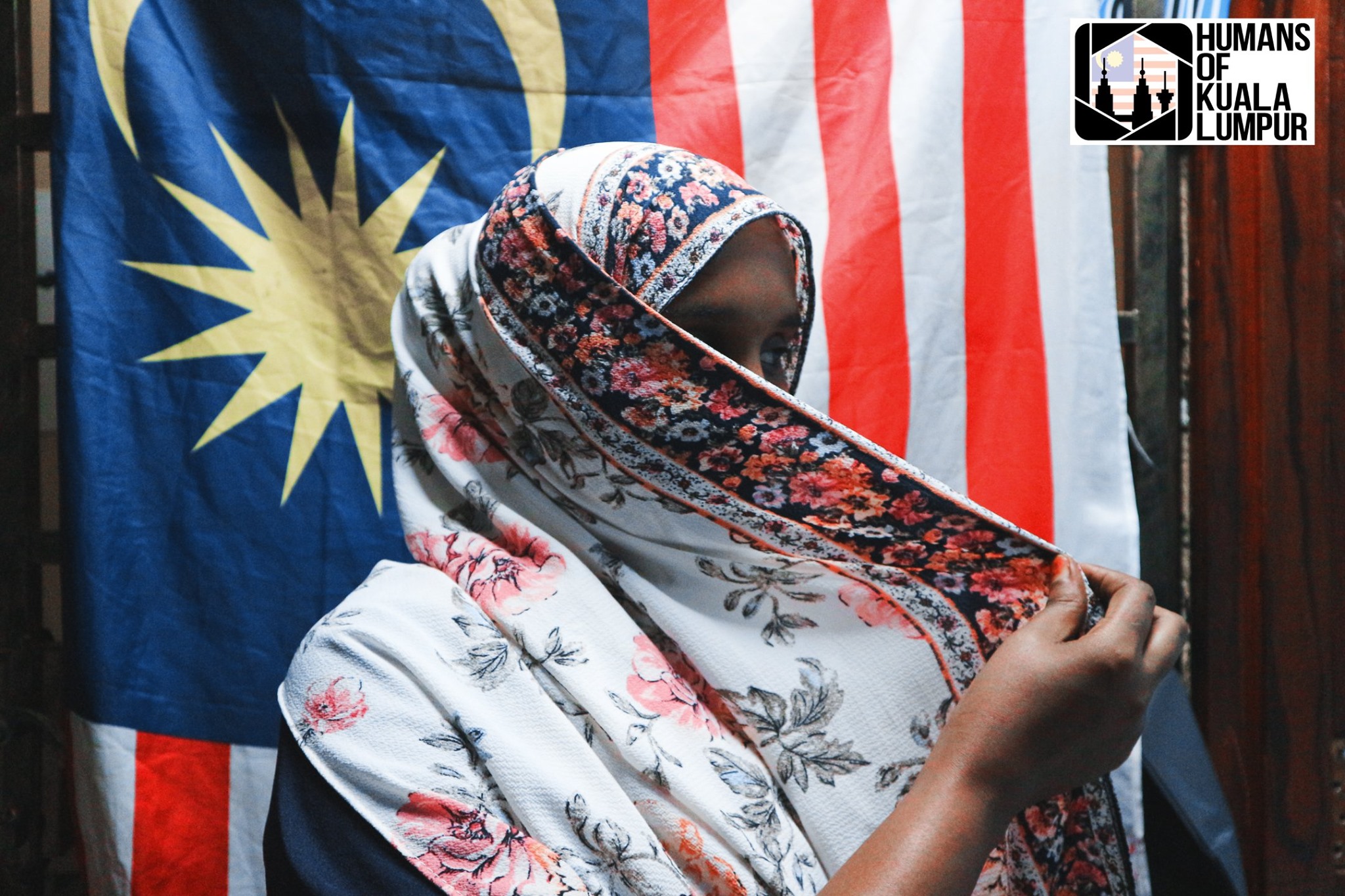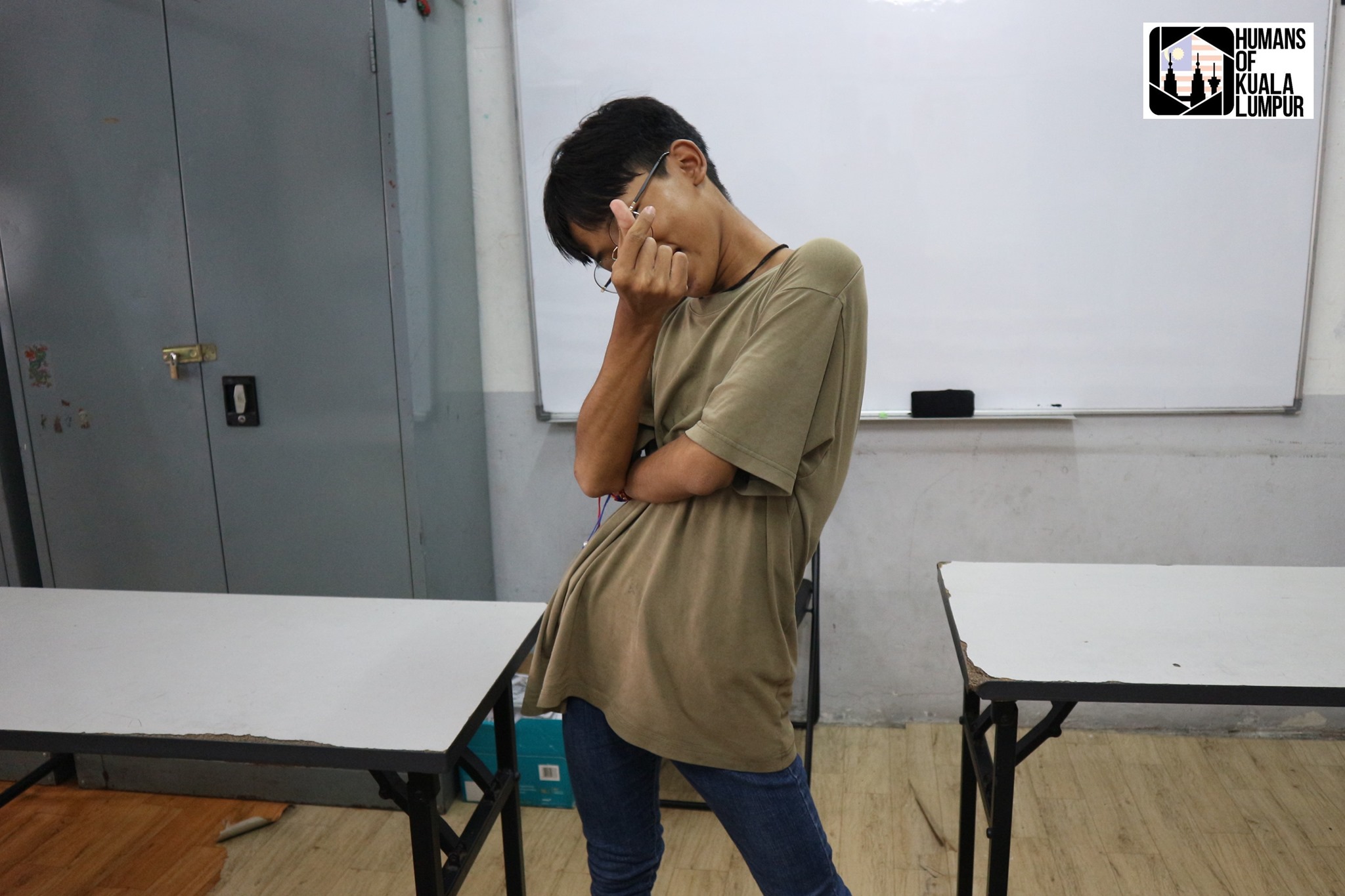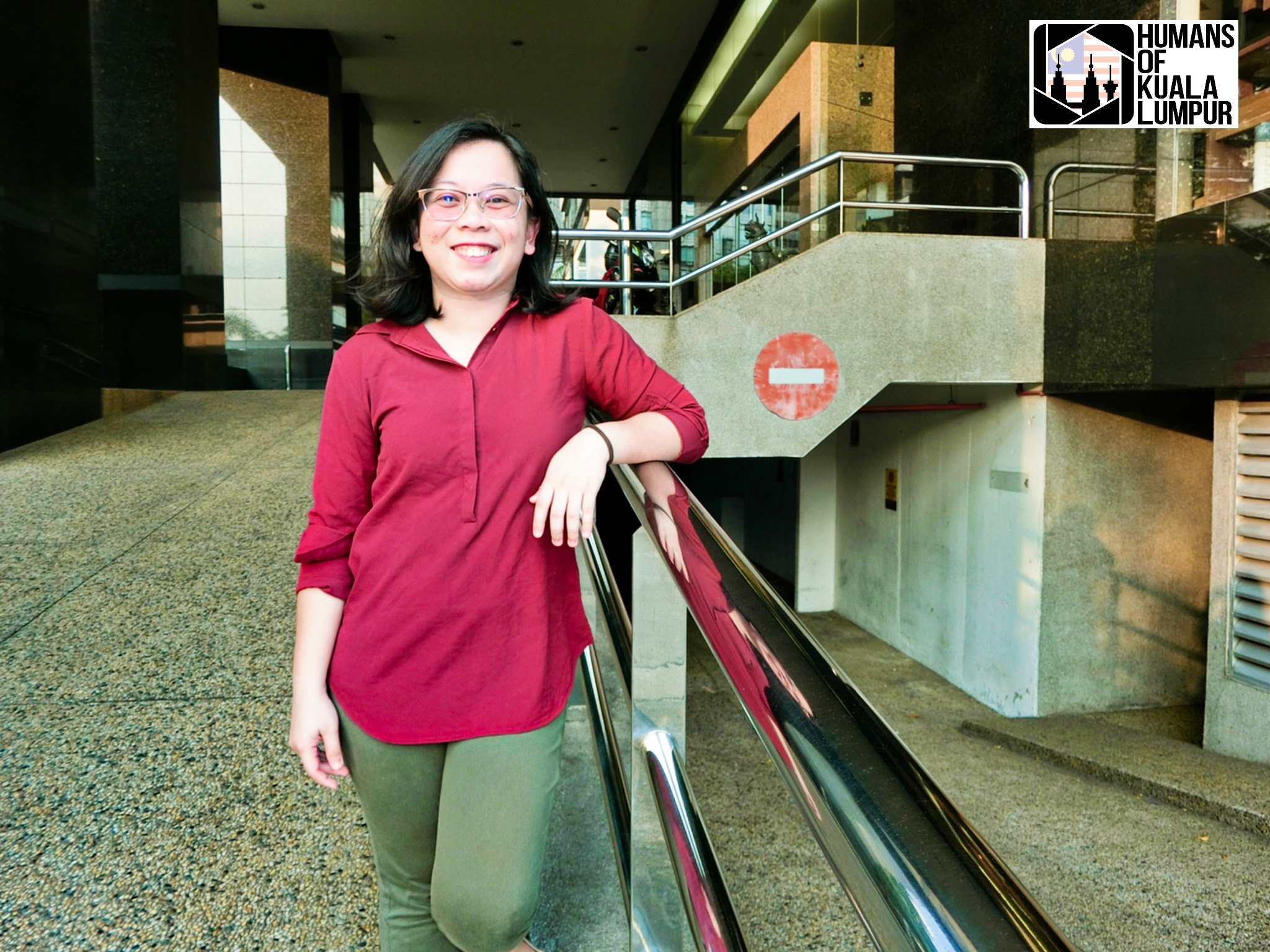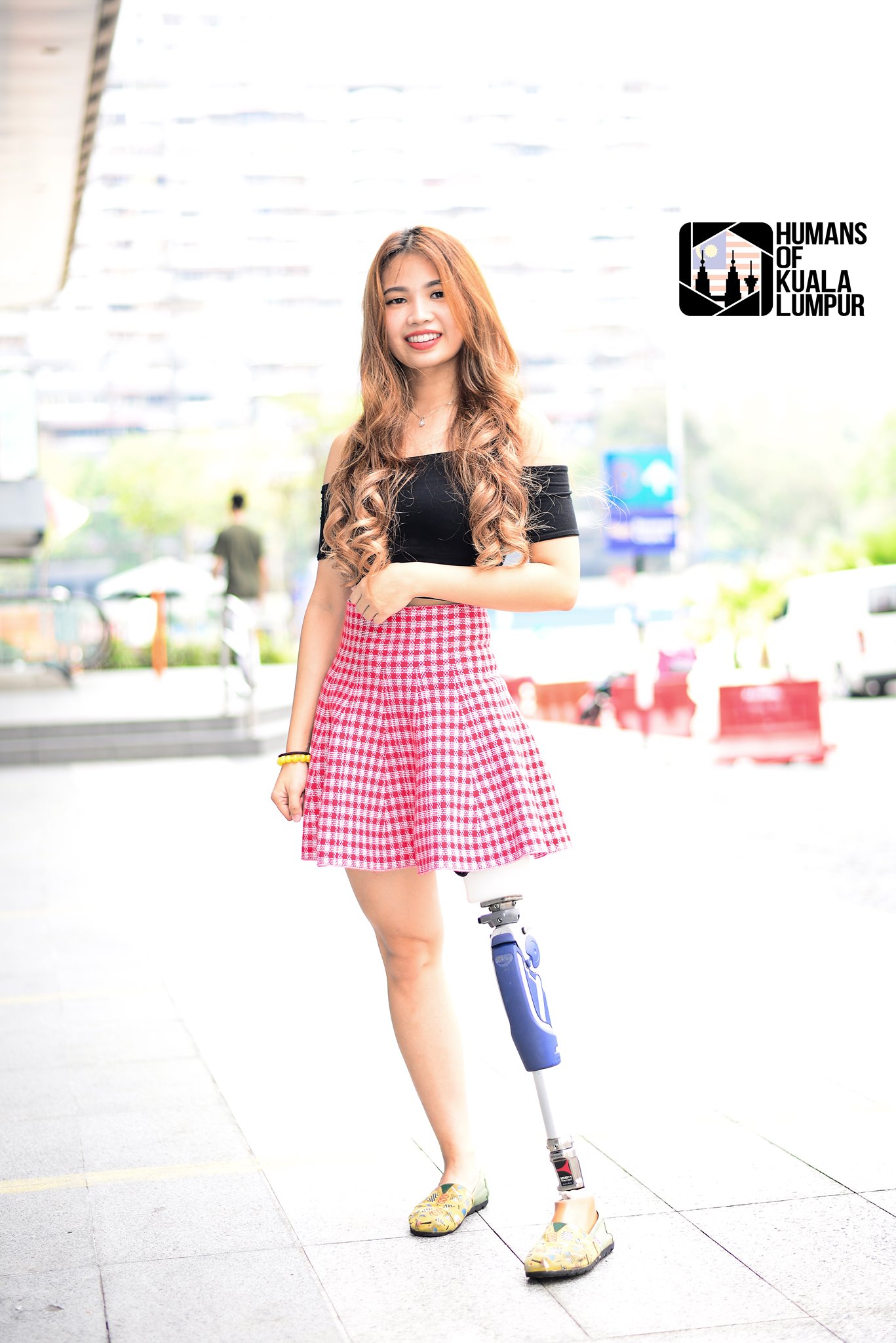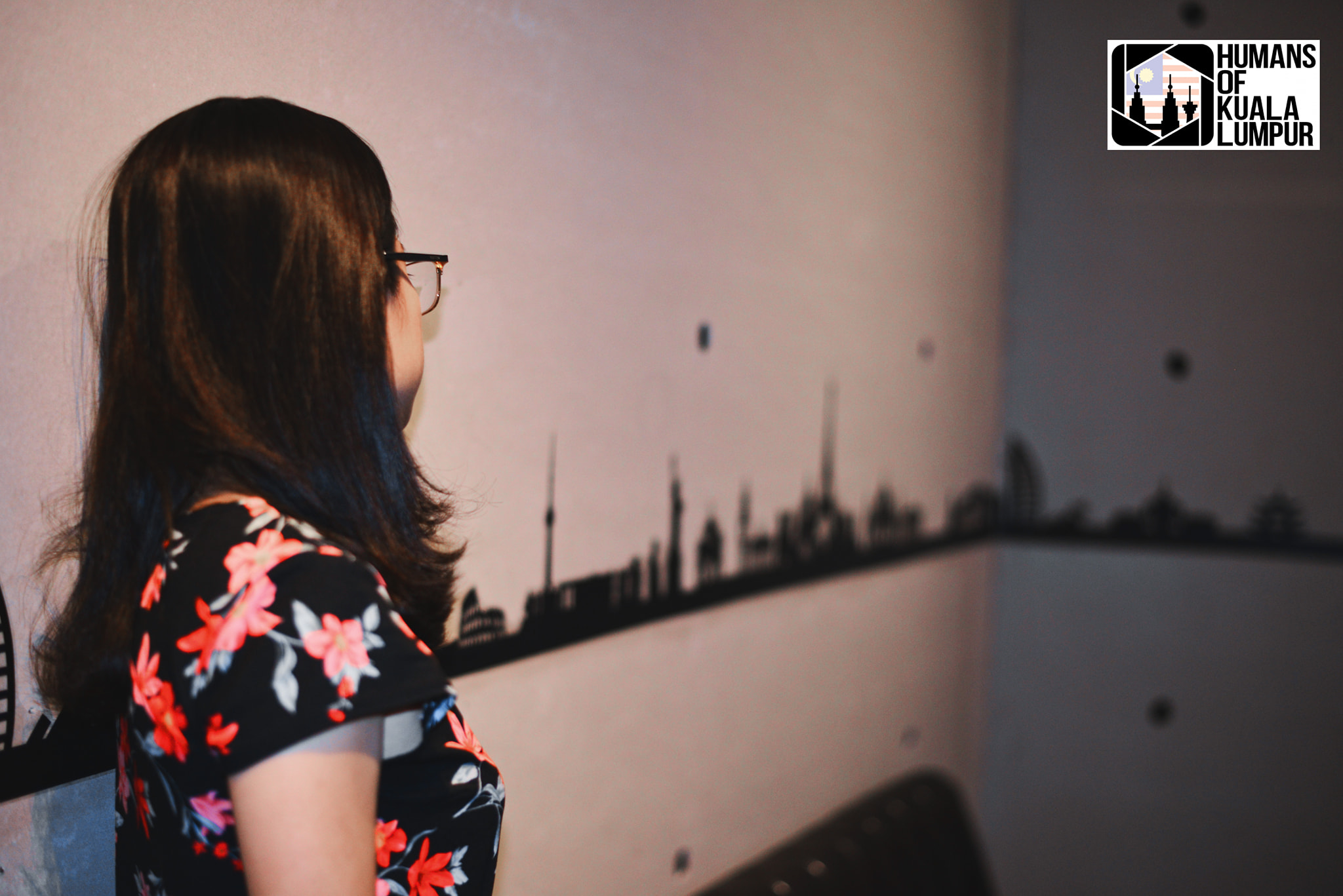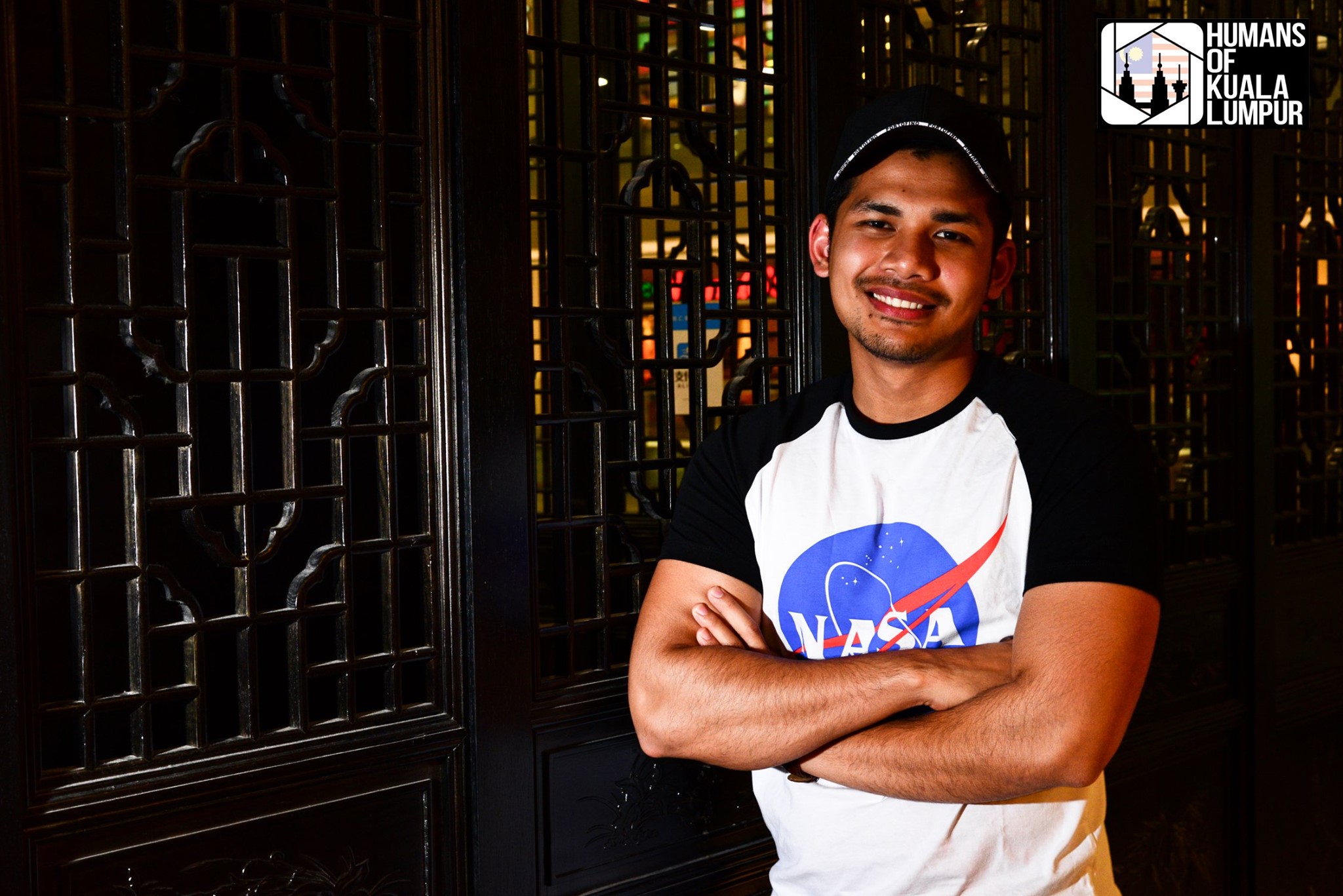“I love their spirit. They, the disabled Paralympians, have spirit. Abled-people always likes to talk big that they can do something – but if you can see the determination of the Paralympians, you will go back home thinking that the ‘orang cacat’ (disabled people) can do better than you.
I met this amputee where his whole leg below the hip was amputated – and he cycles faster than me.
I don’t cycle to win medals but I really want to inspire girls and the disabled to cycle, and to convince others that not only abled people can perform, but even disabled people can perform better than abled-people.
I started cycling when I was 15, when I secretly took my dad’s mountain bike out for cycling rides and races. One day I tried my luck in a 40km race and won 3rd place. My mother realized my potential and encouraged me to continue cycling. My dad thought that a cycling ‘hobby’ would not go far for a girl. But my mom was very supportive and I got my own mountain bike when I was 16, but it was a basic bike and was crazy heavy, around 15kg.
By the age of 18, I was already representing Malaysia at the national level and competed in the ASEAN Games, ASEAN Cup and was in SUKMA (national-level Malaysian Games), twice, winning 2 silver medals. My speciality is in endurance and time-trial cycling.
Last time all abled and disabled athletes were training together at Bukit Jalil.
And I always mixed with the disabled people. I greeted them and ate with them. I saw those who were amputees – with no hands, arms or legs. And I always wondered how could I join them?
And it turns out that they were looking for ‘Pilot’ cyclists on tandem bicycles.
A tandem bicycle is a bicycle where there are two people cycling together.
The ‘pilot’, me, cycles in front, as I am physically abled. The one sitting at the back is the ‘stoker’, and in Paralympics, this is where my blind cyclist partner sits.
I sent in my application and got the job as the pilot cyclist for tandem bicycles.
When I switched over to the Paralympics, people had thought that I had a disability – and kept asking me, ‘what’s your disability?’
In the Paralympics, there are many disabled athletes, from slow learners to the deaf and mute who speaks in sign language only, to those with ADHD, autism, and mental disorders.
They might look and talk normally as a person, but they are considered disabled.
Being a pilot is difficult because it’s hard to control a tandem bicycle, you have to be ‘hati kering’ because it’s so hard to control a tandem, ‘macam drive lorry’.
As we are cycling together to make the tandem bicycle move, the pilot has to be tough. I also control the ‘gears’, and the pilot has to cycle three times stronger than them, in case they have cramps and injuries. I have to announce the directions, where we are heading, be focused and have enough sleep and rest to lead.
I began training with the Paralympians, where we all cycle 200km, daily.
Last week, we cycled from Kampung Pandan to Cameron Highlands and everyone was still standing strong.
Tomorrow, we will be cycling for 180km, and 160km the day after.
In one week I can easily get 2000km of cycling mileage, and even though I have been cycling for 5 years and totaled up millions of kilometers, it was still tough on me.
I feel like I’m able and I should do something for them.
The issue in Paralympics is that para-cyclists that represent Malaysia and have won medals yet they are not recognized for their achievements.
We won gold in the 2014 Asian ParaGames held in Incheon, South Korea because we’ve prepared enough. I want to go further than that – to the Commonwealth Games, the Olympics and the UCI World Championships.
I want to raise awareness of Paralympic cycling. because no one knows about us, no one is watching us. My teammates all feel defeated, asking ‘ is there anyone watching our victories?’
During the SEA Games the crowds were all cheering for Azizulhasni Awang (first Malaysian cyclist to win a medal at the UCI Track Cycling World Championships) – but after him, who wants to watch us? So I am trying to raise awareness on this.
It is a form of a charity helping them in religion. And I am only getting paid a salary of RM 1,000. I really hope one day, my blind stoker and I can make it to the Olympics-level.”
(This story was taken one week before Adilla and her disabled cycling partner won the Gold medal at the SEA Games – Women’s Paralympic (Tandem Cycling) event)
– Humans of Kuala Lumpur
Photostory by Mushamir Mustafa


